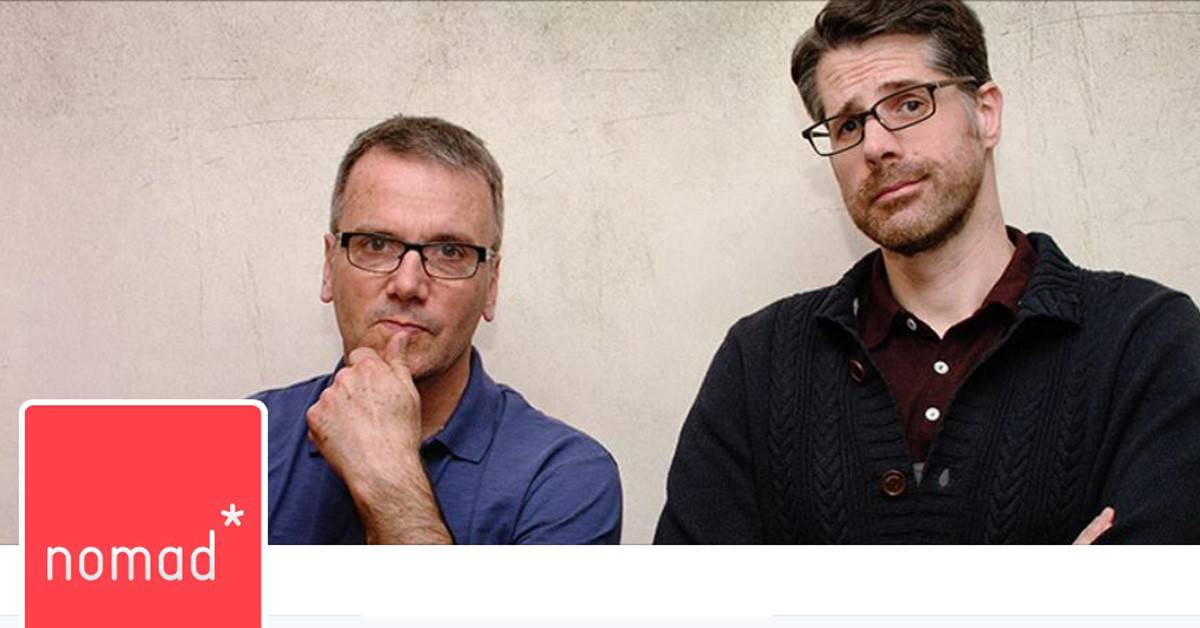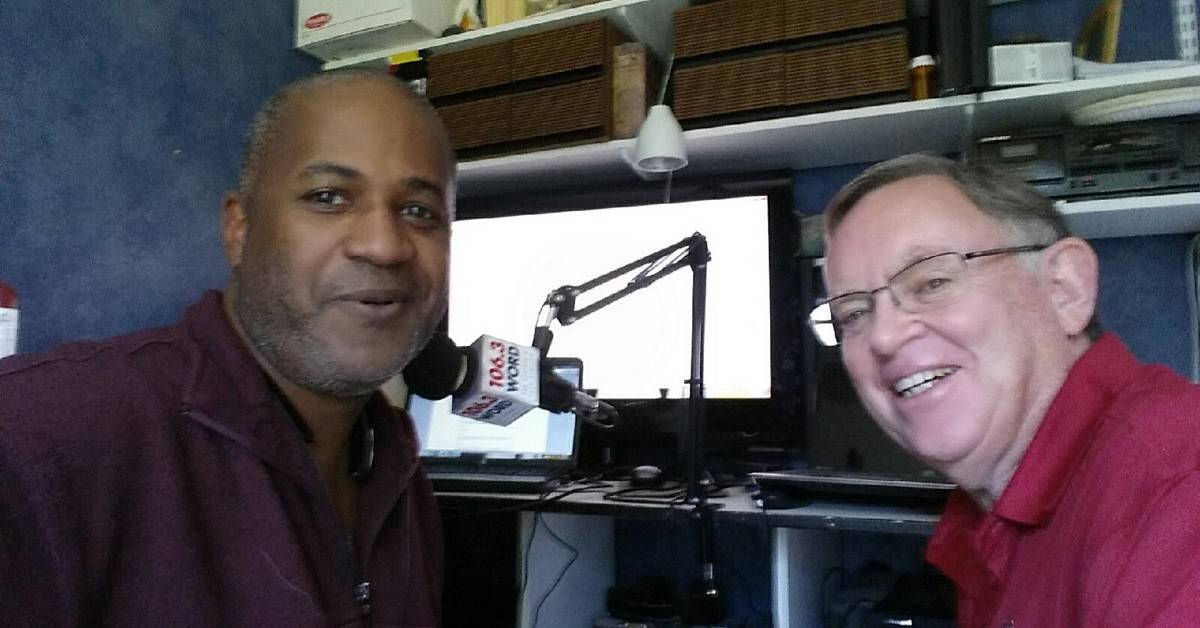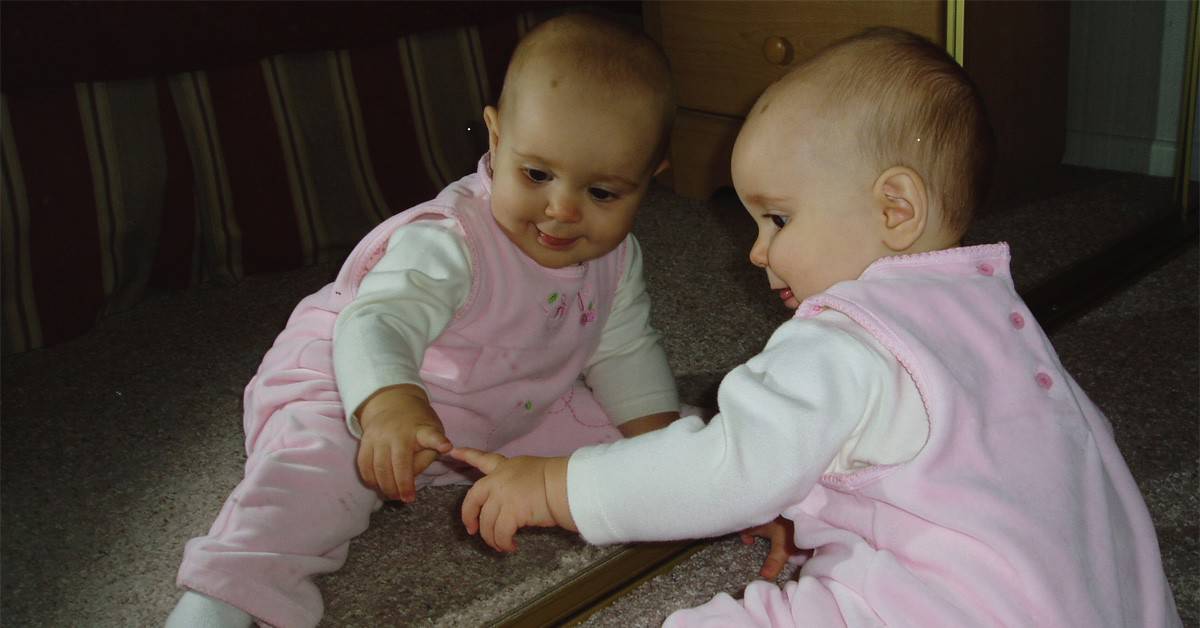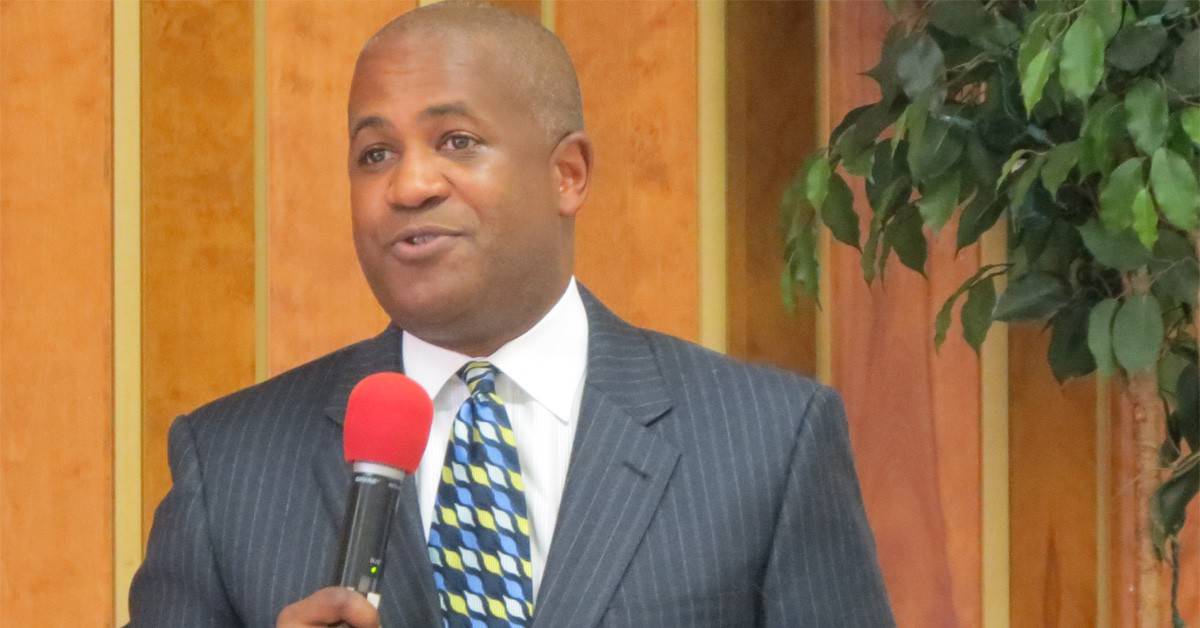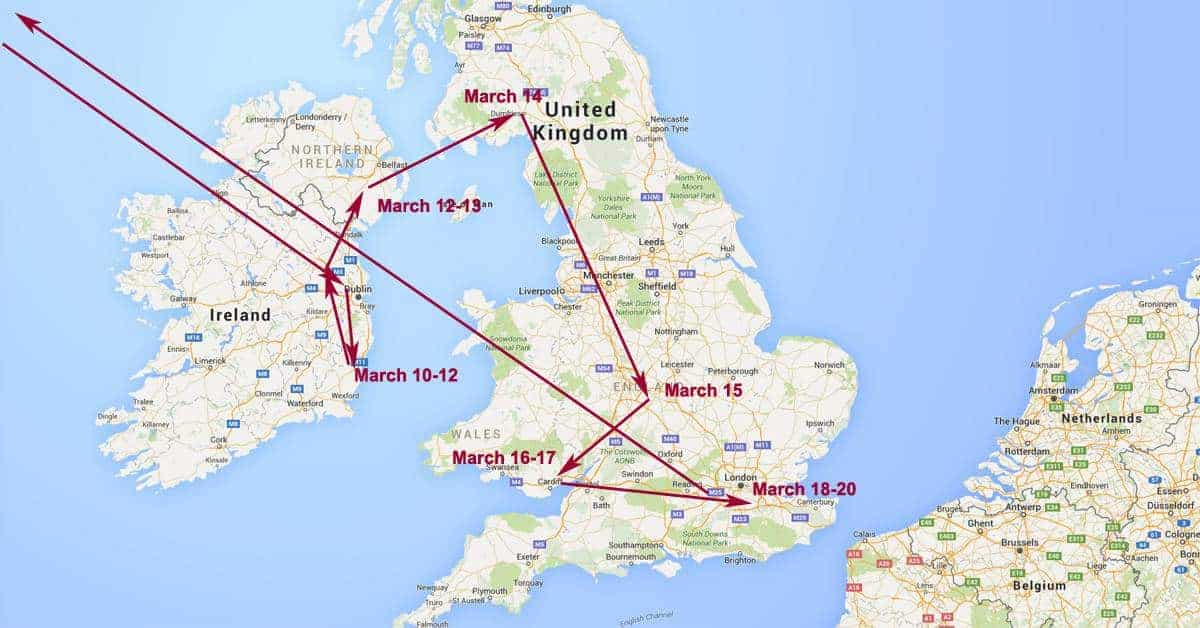“Do you have any conflict enjoying the money you have in a world with so much need?”
I had been invited by a friend to attend an investment seminar and there were some high rollers in the room. As I looked around, however, I was surprised to see so many facial expressions that seemed confused by the question. Obviously they didn’t. I do. Every day.
When the speaker went on to ask why not, most responded that they had worked hard for what they had and never thought twice about enjoying a disproportionate slice of the world’s pie. The unspoken inference, of course, is that poor people don’t work as hard so they are only getting what they deserve. It’s only one of the lies wealthy people tell themselves so they can ignore the needs of others as they plunge headlong into their own amusements. But you can only believe that if you don’t actually know people who have very little and not a lot of options to help them move beyond it. And I don’t mean know about them, but actually know them individually.
I was raised a law-and-order Republican. I grew up with a high regard for discipline, hard work, and respect for authority. If you live responsibly and work hard you can get ahead in the world. Disobey a policeman and you risk getting shot. Do something illegal and the consequences should be severe.
But that’s before I caught a glimpse of life through the eyes of an African-American mother who not only fears the influences of the neighborhood on her son, but also any interaction he might have with the police and how it might escalate because of misunderstanding and fear. And I’ve become good friends with a family of undocumented immigrants and see first hand not only the hardships they endure, but also how our culture exploits them for its gain without rewarding them for their hard work.
These relationships have caused me to reassess many of my lifelong conclusions and it’s helped me come to grips with the lies affluent people use to justify their own comfort and suppress their generosity for people in need. Almost everyone screams unfair when they perceive circumstances have been rigged against them, but almost no one cries foul when they benefit from that rigging.
These are the lies you have to believe if you want to live callously in the world. To be truthful, I’ve actually benefited from most of them and grabbed for them whenever I needed to suppress my compassion for those in need. They allowed me for many years to live unaffected by the disproportionate distribution of resources in the world. Having them exposed has been a great gift to my humanity and has allowed me to discover the joys of generosity.
Lie #1: We all have the same opportunities; it’s just that some work harder. That’s what lie behind those confused expressions I saw at the investment seminar I mentioned at the beginning of this article. We love the illusion that a child growing up in south central Los Angeles has the same opportunities as those who grow up in the suburbs or small town America. Didn’t we solve inequality during the civil rights movements of the 60s? Can’t every child go to school, apply herself, get a college degree, and find a better life? We do have enough stories of people who have done it to think it’s true, not admitting that these are still the exceptional stories not the routine ones.
Without hope of a better, the tools to get there, a support network to encourage them they will never recognize the opportunities that may be at their disposal or be able to access them. There’s a reason why there are neighborhoods we wouldn’t chose to live in and schools we send our kids to.
Like #2: If you work hard enough you can be anything you want to be. Whenever someone becomes President or wins an award they claim it is proof that in America you can be anything that you want to be if you dream big and just work hard enough.
On the face of it, that conclusion is absurd. Only a miniscule percentage of people can make it to the top of any profession and those usually had some combination of lucky breaks, helpful relationships, or a gift or talent not everyone has. They want to believe they did it on our own so they can reap the rewards guiltlessly. But it creates so many false expectations. Not every child who dreams of being President, best-selling author, star athlete, a doctor or even an astronaut will get to be one. Competition will ensure that only a few will get to live those dream.
While capitalism gives everyone a shot at success, it tends to reward greed, which is why any industry rewards so few people with exorbitant amounts of money while all the average worker make a pittance in comparison. I’ve never understood the CEO who works alongside support staff who make a fraction of his salary, or the star athlete who thinks he deserves so much more than his supporting cast. Capitalism doesn’t reward the hardest workers, but the well-connected and whatever tinkering the government does with it should be to mitigate on behalf of those on the lower ends, not sell out to those on the upper ones.
Lie #3: Every human is equally valued. By God, yes! By human societies, or even among societies, far from it! Even if we may confess that all are created equal, in practical terms a culture weights its priorities to those in power. Some of us grew up with tremendous support systems, parents that championed us, a community that shared a common value of hard work and self-discipline. Others grow up in communities where it takes every ounce of energy just to survive the influences that pull them into a darker world and every day face biases in society that give them a steeper hill to climb. The cry of “Black Lives Matter” was not to say that others didn’t, but to get the culture to recognize that in many places people of color are less valued by those in power and put at greater risk by them.
Lie #4: Inalienable rights apply only to American citizens. Our forbearers fought a revolution on the premise that all of us are created equal and that our inalienable rights of life, liberty, and the pursuit of happiness are not bestowed by government, but the gift of Providence. When we think American citizens deserve more than others in the world, we undermine our own revolution. When you can hold others in contempt for simply wanting the same things you want, you make the world a poorer place. We would be better served with a more holistic view of the world knowing that none of us are truly free until we all are. Nelson Mandela said it best, “To be free is not merely to cast off one’s chains, but to live in a way that respects and enhances the freedom of others.”
Lie #5: Illegal immigrants deserve the hardships they endure for breaking our law. They should just go home and get in line like everyone else.
What if they can’t go home because home has been here for so long there’s nothing to go back to? For decades our society has exploited this group both in hiring them at lower wages and denying them access to the lowest rungs of the economic ladder. I realize this is a failure of government to secure the border, and that appropriate measures must be taken to regulate immigration so it won’t overwhelm the culture. Not every child born her should automatically become a US citizen, especially when the parents are nonresidents. We can argue those issues in other venues, but we let them come here, exploited their labor, and shown no will to make them return for multiple decades. It is unjust to let them live in limbo while both political parties use their plight to garner votes when no one is actually serious about resolving the problem.
And those who are not willing to consider a pathway for legality for those who are living in the shadows of American society can’t possibly know anyone who came here in fear of their lives or simply to try and find a way to feed their children. Let me tell you about the “illegal alien” I know. He came here twenty-five years ago because as young man he faced certain death if he didn’t join the drug cartel. He works far harder than I do, and is constantly exploited by employers that increase his work while decreasing his pay, knowing he can’t complain. He pays taxes and has never sought welfare or free medical care. He keeps the laws more than I do because the consequences of being caught are so devastating.
His two daughters are U.S. citizens. A few years ago He sold everything he had to pay $18,000 to an attorney who promised him a way to get a green card, only to see the lawyer arrested a few years later for selling fraudulent documents. No human being deserves to be treated like this and our society should no longer ignore his presence or how we have exploited him. There is enough in America to absorb these extra people. They are already here. They are already contributing and if they haven’t broken the law in other ways we should fight for their inclusion in our society at some level. Even the Old Testament encourages kindness and compassion for the stranger or alien. Oh, that may mean some of us will have to wait an extra six months before upgrading our iPhone, but is that to high a price to pay?
Lie #6: I did something deserving to be born in a developed country with a comfortable lifestyle. No one actually says this one out loud, but you can tell they believe it by how they look at others “less fortunate” than them. Born part way up the ladder of success, they can’t understand the challenges of those to even find that ladder or even have access to it’s lowest rungs.
If where we were born, and what abilities and talents we have is a gift, wouldn’t we be more mindful of those who have less to start with and greater challenges to overcome to find a stable place in society?
Lie #7: Desperate people have choices. We think people can better themselves by hard work and discipline, and for the most part many can. But what if demands of daily survival are so overwhelming that they don’t have the time or energy to do so? Some people are simply victims of crime, war, famine, natural disaster, medical conditions, or psychological brokenness that they have incredibly few choices. Send an immigrant home or telling a poor youth to get a job may seem easy enough from your station up the ladder, but for people trying to survive the next day, the feat may be unimaginable without some help.
People on the margins need help to find a fruitful life in our society. Many of us got that from our parents or the slice of culture we lived in. Many did not. They need someone to be a champion for them, finding the space in their lives and the opportunities at hand to move away from the inheritance of their past and find a better future.
Lie #8: That government can fix these problems with the right program. If you were afraid my discoveries have made me a Bernie Sanders socialist, they have not. While government programs can help address these issues in a limited way, the effectiveness of mass bureaucracies has a horrible track record. My wealthy liberal friends are so certain government can fix all of this by passing laws and redistributing income, and can’t seem to admit that the worst kind of entitlement does not come from the poor who need help, but politicians and bureaucrats who run the programs for their own gain or convenience. We can’t even get government to provide health care to our veterans without huge delays, or waste and fraud by the bureaucrats themselves. Many are more concerned with their lavish pensions, red tape, and extravagant retreats than the veterans themselves.
I sometimes wonder if those who push government for the poor are their way of spending other people’s money to make them feel like they are doing good, when they are not willing to invite those people into their lives and homes. They can pat themselves on the back for doing good without ever making a personal connection among the poor and marginalized. That’s why many of our programs are not about empowering them to a better way of living, but only making them more dependent on the government and the political party that wants their vote. Socialism rewards laziness and dishonesty precisely because it doesn’t involve people in the solution, only dollars. Our government programs are broken, flush with massive waste and corruption. Washington, DC is the most affluent area of our country and they produce nothing except twisted laws to reward special interests as they line their own pockets. Start a government program and within a few years it will be less about the need it was meant to address as protecting the bureaucracy it spawned. Until government officials can be disciplined for incompetence and fraud, that won’t change.
But that doesn’t mean that individuals can’t respond out of a generosity that is born of proximity. The reason why so much of our nation remains calloused to these problems is because they don’t know anyone actually facing them. Until you know people who deal with violence or hunger or have a relationship with an undocumented worker you can ignore their plight and stick with the political view that serves your own ends. Proximity changes everything. Get outside your culture group and engage firsthand the challenges others face then you’ll know how you might be able to help them.
Until “those people” who crossed the border illegally, or live in dangerous neighborhoods become our friends and neighbors nothing will change. Until we see the world as our neighborhood and put faces and personalities to orphans growing up on the streets, children trafficked for sex, or parents starving in war or drought, those situations remain an abstraction and we can hold our law-and-order principles to the exclusion of love and compassion. Get to know some of them, and your heart will change. Jesus told a story about a Good Samaritan to help us understand we are all part of a bigger family and cannot think only of ourselves.
This is where the lies of affluence come to die and some amazing acts of human compassion can begin. When you find people hurting, help them with whatever you have. If you don’t know any, volunteer at a soup kitchen, or a ministry in the inner city. Don’t just give them money, befriend them and you will no longer be able to hide in those lies. You’ll join them in looking for solutions that will help empower them to better their own lives rather than remain dependent on others. You will be a voice for a more compassionate society. Change happens when the powerful advocate on behalf of the powerless, instead of making them fight for it themselves.
And I’m not talking only to the one-percent-ers here. From a global perspective if you have $3,650 of net worth—including the equity in your home—you are among the top 50% of the worlds wealthiest citizens. If you have than $77,000 you are in the top 10%. And if you have $798,000 you belong to the top 1%. That’s according to the Credit Suisse Global Wealth Report. That’s not a merit badge to wear proudly, but an opportunity to look for ways to share with others in the world where children still go to bed hungry or wake up in fear for their lives.
Generosity emerges when we realize everything we have is a gift, and the more we have the more responsible we need to be in sharing it with others who do not have the same advantages we do. It seeks to help them not only by the charity of things, but also by empowering them with the tools to better their own lives.
I know no system that can change the world. I know the generosity that can change one life or one family, one neighborhood at a time. If enough of us buy into that, then the world will change too.




